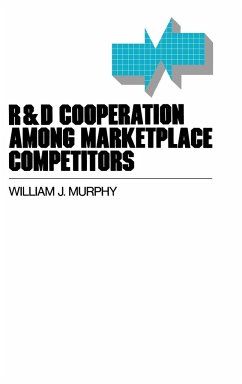
The Grievance Process in Labor-Management Cooperation
Versandkostenfrei!
Versandfertig in 1-2 Wochen
69,99 €
inkl. MwSt.

PAYBACK Punkte
35 °P sammeln!
In this ground-breaking book, Duane argues that companies of the 1990s will derive their real competitive advantage from labor-management cooperation. To this end, he notes that labor-management relations, as defined by grievance activity at the shop level, determines to a large degree whether joint ventures between labor and management will be successful. Accordingly, Duane offers a comprehensive discussion of how the grievance process affects labor-management cooperation and firm performance. He also identifies those factors that contribute to effective grievance resolution. Competitive thre...
In this ground-breaking book, Duane argues that companies of the 1990s will derive their real competitive advantage from labor-management cooperation. To this end, he notes that labor-management relations, as defined by grievance activity at the shop level, determines to a large degree whether joint ventures between labor and management will be successful. Accordingly, Duane offers a comprehensive discussion of how the grievance process affects labor-management cooperation and firm performance. He also identifies those factors that contribute to effective grievance resolution. Competitive threats have forced unionized firms to consider alternative industrial relations systems, including labor-management cooperation. In the first part of the book, Duane reviews the cooperative options that are available to labor and management. He begins by evaluating the effectiveness of various labor-management programs and presents practical examples of how to properly implement and maintain them. Cooperative contract negotiation is then offered as a possible labor-management strategy to enhance the competitiveness of the firm. Several suggestions are offered, aimed at ensuring that cooperation at the bargaining table will be successful. Throughout the book, a compelling case is made that the grievance process plays a critical role in promoting labor-management cooperation. Over 40 practical propositions concerning the determinants of forward-looking grievance resolution are identified and thoroughly discussed.












